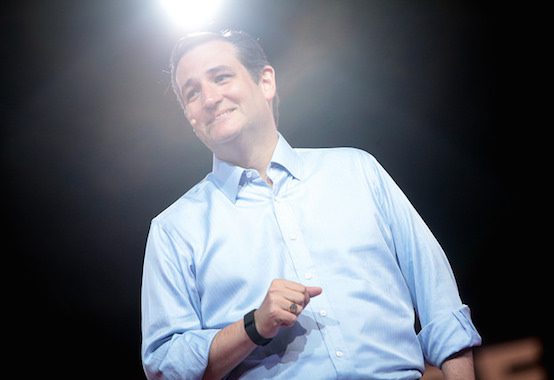Iowa Results

Despite dropping in late polls, Cruz used his superior campaign organization to storm back and take the Iowa caucuses by a decent margin. If a Cruz win seems somewhat anticlimactic at this point, that’s only because he had been doing very well in the state for several weeks until his slump in late January. Trump’s equally unimpressive ground game left him with the second-place finish that he was poised to have a couple weeks ago, and that happened in spite of a huge increase in turnout that was supposed to help him. I don’t think a second-place finish for Trump significantly blunts his advantages elsewhere, and his leads in New Hampshire and South Carolina seem large enough that he is still well-positioned to win in both places. Cruz’s win in Iowa gives the Texan a boost heading into New Hampshire next week, and that means he is likely to shore up his position in third place there. The main story is that two candidates absolutely loathed by party leaders captured more than half the vote in Iowa, and they are on track to win at least two-fifths of the vote in New Hampshire. Cruz’s victory sets up the Trump-Cruz race that Republican elites don’t want, which is why there will inevitably be excessive attention paid to the second runner-up in the coming days.
As it turns out, there really was some movement towards Rubio in the closing days before the caucuses that the Des Moines Register poll evidently missed for some reason. Accustomed to the absurd pro-Rubio spin we have been hearing for the last six months, I discounted the possibility as soon as people started talking about it. Nonetheless, the fact remains that Rubio still finished in third place despite that surge. While he outperformed his numbers in the poll average by quite a bit, but he has not fixed the core problem of his campaign: he is still unlikely to win anywhere in the next six weeks. Now that Cruz’s fortunes have revived with a win, that is in some ways the worse outcome for Rubio tonight than if Trump had finished in first. That almost certainly means that Rubio will still be trailing both Kasich and Cruz in next week’s primary. None of the other “establishment” candidates appeared to be in any hurry to quit after tonight, and the field seems unlikely to shrink much before New Hampshire. For all the hubbub about Rubio’s expected third-place finish, it hasn’t helped him that much with the problems he had elsewhere.
I obviously missed my main prediction by calling the race for Trump, who fell well short of the result I thought he would get. I missed Rubio’s final percentage by a wide margin because I discounted the possibility of a late surge. My guess for Cruz’s percentage was pretty close at 28%, but I erred in thinking that wouldn’t be enough to win. On the Democratic side, I gave it to Clinton by a point, but as of 10:15 p.m. Central the race was still extremely close: 50.1% to 49.3% with 91% reporting. Even if he doesn’t catch her in the end, Sanders almost tied Clinton and given her a huge scare in Iowa. He will have come so close that he definitely can’t be counted out yet. Following an even worse-than-expected result, O’Malley announced he was suspending his campaign.
In contrast to 2012, there’s no question about who won last night. Unlike Romney’s “win,” it isn’t going to be overturned. That clearly makes Cruz the most competitive non-Trump candidate, but we can be sure that lots of donors and pundits will ignore that and continue to chase the Rubio will o’ the wisp for many more weeks.
Comments